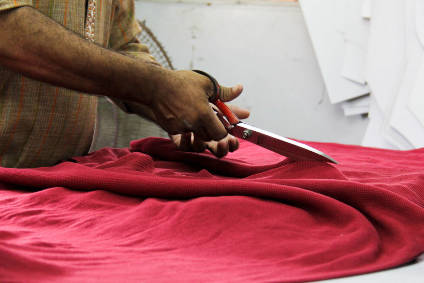
The International Textile Manufacturers Federation (ITMF) is urging brands and retailers to act responsibly during the Covid-19 pandemic, emphasising cooperation and dialogue are vital during this time of crisis.
An international forum for the world’s textile industries, ITMF says the pandemic has revealed “the textile value chain is only as strong as the weakest link.” Extended across international borders, fibres can be produced in one country, yarns spun in another, and fabrics woven or knitted yet in another before the final garment is sewn and shipped across continents.
“Our industry is facing demand shocks due to lockdowns around the world, which have posed enormous challenges to the retail industry. Passing the loss and pain to suppliers by cancelling orders cannot be the answer. To the contrary, cancellations will create even more problems by weakening the supply chain further.
“Textile and apparel companies are willing to do their utmost part to overcome this demand shock by delaying shipments or deferring payments, when necessary. But this has to be within reasonable limits. It is imperative that brands and retailers and their suppliers cooperate closely and look for solutions that support each other.”
ITMF and its national textile and apparel associations represent hundreds of thousands of companies and millions of workers across the globe.
“These companies and workers cannot absorb the burden alone,” the organisation says, noting its recent coronavirus impact surveys have found orders have plummeted by more than 40% globally and that turnover in 2020 is expected to be 33% lower than in 2019.

US Tariffs are shifting - will you react or anticipate?
Don’t let policy changes catch you off guard. Stay proactive with real-time data and expert analysis.
By GlobalData“The most pressing issue for most companies is liquidity,” ITMF says. “Therefore, it is essential that brands and retailers find solutions with their suppliers that allow them to pay their workers and avoid massive layoffs.
“Responsible sourcing practices by brands and retailers are critical preconditions for socially compliant and eco-friendly production. Sustainability is not a one-way street; it can only be achieved, if stakeholders along the supply chain respect and treat each other responsibly.”
Last month, six major garment exporters – Bangladesh, Pakistan. Cambodia, Vietnam, Myanmar and China – came together to call upon global brands and retailers to consider the potential impacts on workers and their supply chains when making purchasing decisions.
More recently, the Bangladesh government took the unusual step of asking the European Parliament to use its influence to try to persuade European clothing brands to be more sensitive about the impact of cancelling orders with Bangladesh-based suppliers during the Covid-19 crisis.
ITMF’s comments follow a group call in partnership with the Better Cotton Initiative (BCI), the Committee for International Co-operation Between Cotton Associations (CICCA), the International Cotton Association (ICA), and the International Cotton Advisory Committee (ICAC) last week for fair and equitable trade practices across global supply chains amid the pandemic.




